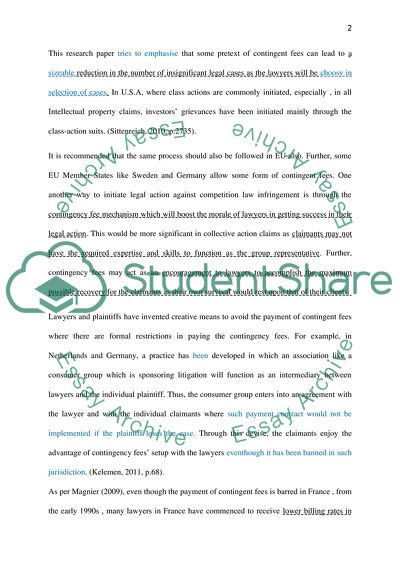Cite this document
(“Contingent Fees for Lawyers in the EU: Are Exceptions Granted in the Research Paper”, n.d.)
Contingent Fees for Lawyers in the EU: Are Exceptions Granted in the Research Paper. Retrieved from https://studentshare.org/law/1831826-contingent-fees-for-lawyers-in-the-eu-are-exceptions-granted-in-the-right-circumstances
Contingent Fees for Lawyers in the EU: Are Exceptions Granted in the Research Paper. Retrieved from https://studentshare.org/law/1831826-contingent-fees-for-lawyers-in-the-eu-are-exceptions-granted-in-the-right-circumstances
(Contingent Fees for Lawyers in the EU: Are Exceptions Granted in the Research Paper)
Contingent Fees for Lawyers in the EU: Are Exceptions Granted in the Research Paper. https://studentshare.org/law/1831826-contingent-fees-for-lawyers-in-the-eu-are-exceptions-granted-in-the-right-circumstances.
Contingent Fees for Lawyers in the EU: Are Exceptions Granted in the Research Paper. https://studentshare.org/law/1831826-contingent-fees-for-lawyers-in-the-eu-are-exceptions-granted-in-the-right-circumstances.
“Contingent Fees for Lawyers in the EU: Are Exceptions Granted in the Research Paper”, n.d. https://studentshare.org/law/1831826-contingent-fees-for-lawyers-in-the-eu-are-exceptions-granted-in-the-right-circumstances.


